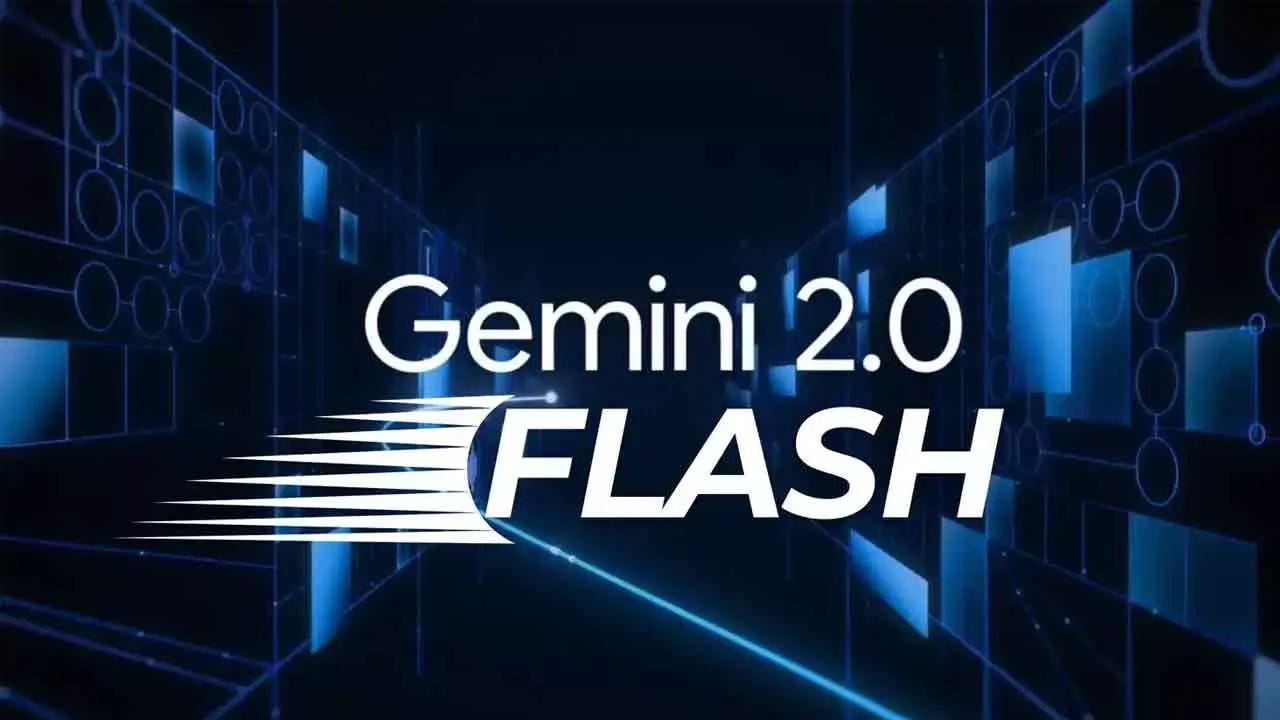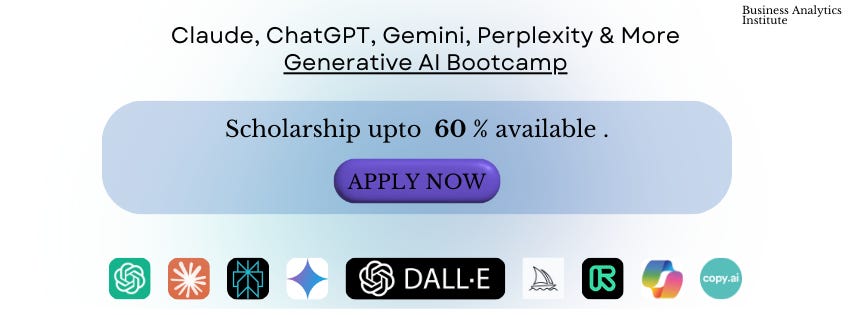Google releases experimental 'reasoning' AI
Issue #75 | Dec 23, 2024
Hi !
Welcome to the new edition of Business Analytics Review !
In this edition of our newsletter, we delve into Google's latest innovation in artificial intelligence: the Gemini 2.0 Flash Thinking Experimental model. This groundbreaking release marks a significant advancement in AI reasoning capabilities, positioning Google as a formidable competitor to OpenAI's o1 model.
Google’s Gemini 2.0 Flash Thinking Experimental
Unveiled recently, Gemini 2.0 Flash Thinking introduces a unique "Thinking Mode" that allows the AI to pause and reflect on complex problems before arriving at a solution. This feature not only enhances the model's analytical abilities but also provides transparency by showcasing its reasoning process. Unlike its predecessor, the base Gemini 2.0 Flash, this experimental model is designed to tackle intricate challenges more effectively, making it particularly useful for developers and researchers looking to integrate advanced reasoning into their applications.
Key Features
Thinking Mode: This innovative mode enables the AI to break down problems into smaller, manageable components. For instance, during demonstrations, Gemini was able to solve complex physics problems by logically dissecting them.
Accessibility: Developers can experiment with this model through Google AI Studio and Vertex AI, allowing for hands-on experience with its capabilities via the Gemini API.
Performance: Early tests indicate that Gemini 2.0 Flash Thinking outperforms many existing models in various benchmarks, particularly in programming and logical reasoning tasks.
Practical Applications
The implications of Gemini 2.0 Flash Thinking extend beyond academic curiosity; businesses can leverage its reasoning capabilities for enhanced decision-making processes. For example, companies in sectors like finance and healthcare can utilize this AI to analyze large datasets and derive actionable insights, ultimately leading to improved operational efficiency.
Why This Matters
As AI continues to evolve, the ability to reason and explain decisions is becoming increasingly critical. The transparency offered by models like Gemini 2.0 Flash Thinking not only builds trust but also aligns with ethical considerations in AI deployment, ensuring that users understand how decisions are made.In a world where data-driven insights are paramount, Google's latest offering is set to redefine how we interact with AI technologies.
Further Exploration
For those interested in diving deeper into the world of AI and its advancements, here are three recommended articles:
"Understanding Google's New Gemini AI Model" - A comprehensive overview of Gemini's features and capabilities.
Read more here"How Reasoning Models Are Shaping AI Development" - An insightful analysis of the impact of reasoning capabilities on AI evolution.
Read more here"Exploring the Future of AI with Google's Gemini" - A look at how Gemini 2.0 is setting new standards for AI performance.
Read more here
Recommended Video for the Day
While both Gemini 2.0 Flash Thinking and OpenAI's o1 model excel in their respective domains, they cater to slightly different needs within the AI landscape. Gemini offers speed and transparency with its multimodal capabilities, making it a strong contender for applications requiring diverse inputs and clear reasoning processes. On the other hand, OpenAI's o1 model remains a robust choice for users prioritizing depth of thought and factual accuracy. Visit Business Analytics Institute for more info.




